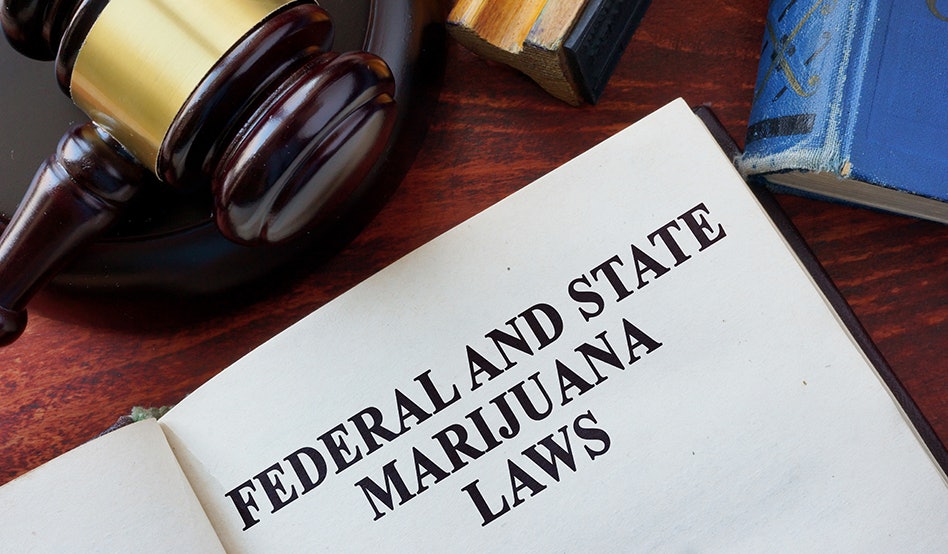featured
Numb Launches Industry-First THCa Live Rosin Syringe – A Precision Tool for the Modern Consumer
Published
2 days agoon

[PRESS RELEASE] MIAMI, FL — May 21, 2025 – Triple 5 Distribution, the team behind the headline-making The Pocket Dab device, is once again shaking up the concentrate space. Introducing the Numb THCa Live Rosin Syringe—a first-of-its-kind, precision-dose glass syringe pre-filled with 2 grams of premium THCa live rosin designed for clean, torchless, mess-free consumption.
Engineered for both cannabis connoisseurs and curious newcomers, The Pocket Dab puts full-spectrum potency and control in the palm of the user’s hand. Its press-to-dispense dosing and terpene-rich formulation make it a highly versatile format—ideal for topping off a preroll, infusing a bowl, adding to a blunt, or even enhancing edibles and beverages.
What Makes It Different:
● 2g of premium THCa live rosin blended by Triple 5
● Glass syringe with press-to-dose precision
● Torchless format – no rig, scoop, or mess
● Reusable, clean, and travel-friendly
● Loud, strain-specific terpene profiles
Launching in Three Loud Strains:
● Lemon Dog Sh*t (Hybrid)
● OG Kush (Indica)
● Blue Dream (Sativa)
“This isn’t just another extract—it’s a tool,” says Eli Dadon, CEO of Triple 5.
“The Numb Syringe empowers users to take control of their experience with a format that’s clean, convenient, and delivers our signature terpene-heavy rosin with zero compromise.”
As concentrate consumers increasingly seek flexibility, discretion, and flavor, the Numb Syringe unlocks new ways to microdose, infuse, or dab without the learning curve.
Part of a Bigger Movement
The launch follows the massive reception of The Pocket Dab, another Triple 5 innovation that redefined how consumers access live rosin. With the Numb Syringe, the company doubles down on its commitment to practical, premium, and culturally relevant cannabis tech.
“We’re not here to imitate,” adds Dadon. “We’re here to lead.”
Dabbing Gains Momentum in the U.S.
Dabbing has become one of the fastest-growing methods of cannabis consumption in the U.S., particularly among younger adults. According to a 2022 CDC report, 28.4% of cannabis users aged 18–24 report dabbing, underscoring its rising cultural relevance. As more consumers move away from traditional smoking, the demand for potent, flavorful, and format-flexible extracts continues to grow—paving the way for innovations like The Numb Syringe.
For more information, click here.

Author: mscannabiz.com
MScannaBIZ for all you Mississippi Cannabis News and Information.
You may like
-


Delivered Inc.: A dispensary at your doorstep
-


Fun Things To Do After Consuming Marijuana
-


UCSF Study reveals risk tied to cannabis consumption
-


Oregon Cannabis Companies No Longer Need Labor Peace Agreements to Renew Licenses
-


One question dogs Pennsylvania’s cannabis debate: Should big businesses have a leg up?
-


Star signs and cannabis strains: June 2025 horoscopes

Sometimes you just want to cut loose and laugh – here are some suggestion for when you consume
Let’s be real—being high can turn even the most mundane activity into a full-blown adventure. Whether you’re sparking up alone or vibing with your crew, there’s something magical (and hilarious) about the way weed makes everything 10x funnier. If you’re looking for ways to lean into the giggles and good vibes, here are some tried-and-true stoner fun things to do after consuming marijuana which will make you belly laugh.
RELATED: How Hemp Helps You Sleep
Watch Weirdly Specific YouTube Videos
You haven’t lived until you’ve watched a 20-minute deep dive on why Shrek is secretly a cinematic masterpiece—or a guy restoring rusty knives in silence. The weirder and more niche, the better. Bonus points if you’re watching with friends and everyone has different commentary.
Play “High Charades”
Take classic charades, but add the confusion of being high. Someone inevitably ends up acting out a pineapple or accidentally miming their entire life story. It’s chaotic. It’s absurd. It’s comedy gold.

Cook Something You Definitely Shouldn’t Be Cooking
Think: grilled cheese with Doritos, marshmallows, and hot sauce. The high kitchen is a lawless place, where flavor profiles are made up and regrets come later. Just remember to document your “creations”—because your sober self won’t believe it.
Go on a Deep Dive into Random Wikipedia Pages
Start with “platypus,” end up at “the history of vending machines in Japan.” Reading while high becomes a journey through the most bizarre corners of human knowledge. You’ll be smarter? Maybe. Entertained? Definitely.
Try to Beat a Kids’ Puzzle Game
Bust out Connect 4, Jenga, or even those weird logic puzzles meant for ages 6–10. You’ll either feel like a genius or realize you’ve been staring at a Rubik’s cube for 45 minutes. Either way, it’s hilarious.
RELATED: CBD Can Help Your Feet Look Better For Spring
Narrate Life Like a Nature Documentary
Turn your living room into a National Geographic special. Watch your roommate forage in the kitchen like a wild animal. Add a British accent. “Here, we observe the rare species known as ‘Chad’ in his natural habitat… the snack cabinet.”
Listen to a Song That’s Just… Strange
Find the weirdest song you can—something with yodeling or heavy theremin use. Then sit back, close your eyes, and let the confusion wash over you. It’s like going on an intergalactic voyage in your brain.
Being high isn’t just about chilling—it’s about laughing so hard your abs hurt and making memories that are somehow both chaotic and wholesome. Just remember: stay safe, stay hydrated, and never underestimate the comedic power of a banana

Author: mscannabiz.com
MScannaBIZ for all you Mississippi Cannabis News and Information.
featured
Oregon Cannabis Companies No Longer Need Labor Peace Agreements to Renew Licenses
Published
1 hour agoon
May 30, 2025
Fifty-seven percent of Oregon voters believe cannabis retailers and processors should have labor peace agreements as a prerequisite for state licensure, but that public position is now moot.
The Oregon Liquor and Cannabis Commission (OLCC) announced May 29 that, effective immediately, it will no longer require cannabis companies to submit labor peace agreements to apply for or renew their licenses. The commission had adopted that requirement in December 2024, following the previous month’s passage of ballot Measure 119.
The United Food and Commercial Workers (UFCW) Local 555 filed the ballot measure, in part, “due to ambiguity in federal law” that, according to the international labor union, has led to cannabis workers being denied rights, resulting in “unsafe workplaces, wage theft and other abuses.”
“Something that’s rampant in the industry is toxic chemicals, unchecked safety concerns and lack of proper PPE,” Local 555 spokesperson Miles Eshaia told the Oregon News Service in the leadup to November’s election. “Employers often cut corners. They compromise both worker and consumer safety, and you can avoid all that with a collectively bargained agreement and a collectively bargained safety agreement.”
The OLCC’s U-turn on no longer upholding voter-approved Measure 119 comes after U.S. District Court of Oregon Judge Michael H. Simon ruled on May 20 that the ballot measure is preempted by the National Labor Relations Act (NLRA) and violates cannabis companies’ rights to freedom of speech.
“Given this ruling and in consultation with the Oregon Department of Justice, the OLCC will no longer require labor peace agreements as part of cannabis license applications and license renewals,” according to an OLCC news alert released on May 29.
Initially, it was unclear whether Oregon’s Justice Department would appeal Simon’s May 20 ruling.
Before getting overturned, Measure 119 had required cannabis business licensees or license applicants to “remain neutral” with respect to a bona fide labor organization’s representatives communicating with their employees, which Simon ruled was an abridgement of their First Amendment rights.
“Measure 119 is not limited to restricting only threatening, coercive, false, or misleading speech, but instead prohibits all speech by employers that is not ‘neutral’ toward unionization,” Simon wrote in his opinion and order. “Therefore, Measure 119 violates plaintiffs’ First Amendment rights to free speech.”
Cannabis retailer Ascend Dispensary and cannabis processor Bubble’s Hash, both licensed in Portland, Ore., filed the lawsuit in February, naming Gov. Tina Kotek, state Attorney General Dan Rayfield and a pair of OLCC officials as defendants.
The defendants, in part, argued that the NLRA might not apply to state-sanctioned cannabis businesses, which operate in a federally illegal marketplace under the Controlled Substances Act. This presented a “threshold question” in the case that Simon answered.
“The NLRA does not limit its jurisdiction to ‘lawful commerce’ or ‘legal substance,’ as some other federal laws do,” the judge wrote. “The NLRB has issued advisory memoranda dating back to 2013, in which it has stated that the medical marijuana industry is within the NLRB’s jurisdiction if the business meets the NLRA’s jurisdictional monetary requirements.”
With states like California, Connecticut, New Jersey and New York already requiring certain cannabis businesses to enter into labor peace agreements for licensure, a common assumption is that cannabis workers don’t have the right to organize under the National Labor Relations Act and therefore need state statutes.
Jeff Toppel, a partner at Bianchi & Brandt, told Cannabis Business Times in December 2023 that that assumption doesn’t hold.
“The premise of [Oregon’s] statute, and I think a lot of the other statutes that seek to require labor peace agreements, is this false premise that [cannabis workers are] not given the full gamut of federal law, of federal protections, because they’re in cannabis,” Toppel said.
One example is when the National Labor Relations Board (NLRB) ruled in December 2022 that Curaleaf acted unlawfully when the multistate operator refused to come to the bargaining table and recognize that its dispensary workers in Chicago voted to join the UFCW.
Toppel, who has argued countless union cases before the NLRB, said that forcing labor peace agreements through state statutes often leads to employers shopping around to get the best deals, which doesn’t always benefit the employees.
Although cannabis companies are no longer required to strike labor peace agreements in Oregon, nothing is stopping the state’s dispensary workers from organizing on their own.
Simon’s ruling in Oregon, however, collides with a March 2025 decision in the U.S. District Court of Southern California, where Judge Todd W. Robinson dismissed a challenge to California law that requires cannabis business applicants or licensees with 10 or more employees to enter into labor peace agreements.
That lawsuit was filed in April 2024 by Ctrl Alt Destroy LLC, which, according to the California Department of Cannabis Control’s (DCC) licensing database, does business as Embr, a dispensary in La Mesa, San Diego County.
California Attorney General Rob Bonta and DCC Director Nicole Elliott, as plaintiffs, argued that the court should not grant Ctrl Alt Destroy its requested relief because doing so would directly facilitate federally illegal conduct.
Robinson agreed, tossing Ctrl Alt Destroy’s challenge on the conclusion that the federal court could not lend its judicial power to a plaintiff “who seeks to invoke that power for the purpose of consummating a transaction in clear violation of [federal] law.”
In Oregon, a UFCW Local 555 spokesperson pointed out the conflicting federal rulings in a statement provided to KOIN 6 News.
“We now have conflicting federal rulings, with a judge in Oregon putting Measure 119 on hold while a California judge has upheld a similar law,” the spokesperson said. “One of these rulings is destined to be overturned on appeal. Our strong suspicion is that Judge Simon’s opinion, which flaunts Supreme Court precedent, will be the one reversed.”

Author: mscannabiz.com
MScannaBIZ for all you Mississippi Cannabis News and Information.

Colorado’s medicinal psilocybin program is set to launch soon after officials said they have licensed and inspected a testing facility, which was the last type of business required to properly run the program, Marijuana Moment reports.
The Colorado Department of Revenue’s Natural Medicine Division (NMD) said in an email Tuesday that officials are “excited to announce that the first licensed testing facility is fully certified by the Department of Public Health and Environment” (CDPHE).
Colorado voters approved the legalization of psychedelic mushrooms in 2022. Under the proposal, people aged 21 or older can grow and share psychedelic mushrooms, and the state is establishing regulated “healing centers” where people will soon be able to make appointments to consume psilocybin in a controlled environment.
In addition to the testing license, regulators have also approved five separate healing center licenses, three cultivation licenses, and two manufacturing licenses. Dozens more licenses are still pending.
“Now that the Colorado Department of Revenue has licensed cultivators, manufacturers, healing centers, and testing facilities, CDPHE has certified a testing facility, and the Colorado Department of Regulatory Agencies has licensed facilitators, natural medicine can start to be transferred from a cultivator or manufacturer to a lab for testing, then eventually to a healing center where a facilitator can oversee administration.” — CDPHE statement, via Marijuana Moment
The Colorado psychedelics program follows in the footsteps of Oregon, where voters approved a medicinal psilocybin program in late 2020, and the program launched in early 2023.
Get daily cannabis business news updates. Subscribe
Have an additional perspective to share? Send us a message to let us know, and if your comment is chosen by our editors it could be featured here.
Perspective to add? Suggest a revision or submit commentary for review using the form below.
Ganjapreneur is made possible by our partners:

Author: mscannabiz.com
MScannaBIZ for all you Mississippi Cannabis News and Information.

Delivered Inc.: A dispensary at your doorstep

Fun Things To Do After Consuming Marijuana

UCSF Study reveals risk tied to cannabis consumption

Oregon Cannabis Companies No Longer Need Labor Peace Agreements to Renew Licenses

One question dogs Pennsylvania’s cannabis debate: Should big businesses have a leg up?

Star signs and cannabis strains: June 2025 horoscopes

Colorado Psychedelics Program Primed for Launch

Haribo recalls sweets in the Netherlands after cannabis detected

Minnesota Governor Signs Bill To Decriminalize Bong Water Containing Drug Residue

Hot Picks in cannabis stocks – BNN Bloomberg

The Cannabist Co. Completes Previously Announced Plan of Arrangement

German Candy Company Haribo Recalls Products for Unexpected Cannabis Content

Haribo recalls sweets in the Netherlands after cannabis detected

Colorado Governor Announces State’s Psychedelics Program Is ‘Fully Launched’

Smoking Marijuana And Playing Video Games Go Hand In Hand, Right? Not So Fast, Researchers Say

The New Micro Cocktail Trend

Cresco Labs Delivers $30 Million in Q1 Operating Cash Flow

DEA links cannabis to mental health issues (Newsletter: May 30, 2025)

VIDEO: 814 pounds of marijuana recovered at Las Vegas home

Two marijuana trafficking suspects arrested after high-speed pursuit, crash on I-35

Haribo recalls sweets in the Netherlands after cannabis detected

Over $120M in banned cannabis seized by CA task force

DEA Promotes Claim That Marijuana Could Be More Likely To Cause Psychosis Than Meth

Las Vegas police seizing boxes of marijuana in northwest valley

Connecticut Appoints The US’s First Cannabis Ombudsperson – Yes there is a pun in there and I’m Sure Erin Kirk Is Going To Hear It More Than Once!

5 best CBD creams of 2024 by Leafly

Alert: Department of Cannabis Control updates data dashboards with full data for 2023

Free delta-9 gummies from Bay Smokes
New Study Analyzes the Effects of THCV, CBD on Weight Loss

Mississippi city official pleads guilty to selling fake CBD products

EU initiative begins bid to open access to psychedelic therapies

May 2024 Leafly HighLight: Pink Runtz strain

Curaleaf Start Process Of Getting Their Claws Into The UK’s National Health System – With Former MP (Resigned Today 30/5/24) As The Front Man

Horn Lake denies cannabis dispensary request to allow sale of drug paraphernalia and Sunday sales | News

Press Release: CANNRA Calls for Farm Bill to Clarify Existing State Authority to Regulate Hemp Products

Nevada CCB to Accept Applications for Cannabis Establishments in White Pine County – “Only one cultivation and one production license will be awarded in White Pine County”

5 best autoflower seed banks of 2024 by Leafly

Discover New York’s dankest cannabis brands [September 2024]

Local medical cannabis dispensary reacts to MSDH pulling Rapid Analytics License – WLBT

6 best CBD gummies of 2024 by Leafly

The Daily Hit: October 2, 2024

5 best THC drinks of 2024 by Leafly

People In This State Googled ‘Medical Marijuana’ The Most, Study Shows

Weekly Update: Monday, May 13, 2024 including, New Guide for Renewals & May Board meeting application deadline

5 best delta-9 THC gummies of 2024 by Leafly

Press Release: May 9, STIIIZY and Healing Urban Barrios hosted an Expungement Clinic & Second Chance Resource Fair

PRESS RELEASE : Justice Department Submits Proposed Regulation to Reschedule Marijuana

Thailand: Pro-cannabis advocates rally ahead of the government’s plan to recriminalize the plant
Trending
-

 Breaking News1 year ago
Breaking News1 year agoConnecticut Appoints The US’s First Cannabis Ombudsperson – Yes there is a pun in there and I’m Sure Erin Kirk Is Going To Hear It More Than Once!
-

 best list10 months ago
best list10 months ago5 best CBD creams of 2024 by Leafly
-

 California Cannabis Updates1 year ago
California Cannabis Updates1 year agoAlert: Department of Cannabis Control updates data dashboards with full data for 2023
-

 Bay Smokes11 months ago
Bay Smokes11 months agoFree delta-9 gummies from Bay Smokes
-

 cbd1 year ago
cbd1 year agoNew Study Analyzes the Effects of THCV, CBD on Weight Loss
-

 Mississippi Cannabis News1 year ago
Mississippi Cannabis News1 year agoMississippi city official pleads guilty to selling fake CBD products
-

 Business8 months ago
Business8 months agoEU initiative begins bid to open access to psychedelic therapies
-

 California1 year ago
California1 year agoMay 2024 Leafly HighLight: Pink Runtz strain


